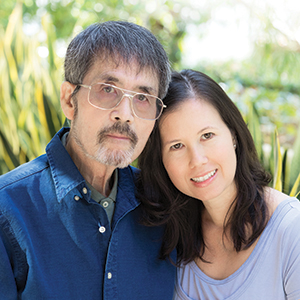-
Caregiving With Confidence
How to Deal with Communication ChallengesThese tips can help make talking about cancer a little easier.
by Aimee Swartz
-
Sound Advice
Your Question, Our AnswerA pain expert puts pain control and opioid addiction in perspective.
-
Forward Look
An Opportunity to QuitNew program funds cancer centers to help patients stop using tobacco.
by Kate Yandell
-
Q&A
Keeping Options OpenResearch scientist Teresa Woodruff is determined to make fertility preservation accessible to more young adults and children with cancer.
by Delia O'Hara
-
Healthy Habits
Fitness BoostPatients living with advanced cancer may find that exercise helps them build strength and maintain independence.
by Jane C. Hu
-
Gaps in End-of-Life Care
Racial and ethnic backgrounds can be factors in whether cancer patients take advantage of hospice care. Researchers and clinicians are trying to understand the gaps and design strategies to bridge them.
by Charlotte Huff
-
Survivor Profile
Family MattersAfter Shigeo Tsuruoka was diagnosed with stomach cancer, his family came together to help him. His daughter, Aki Smith, was by his side as he navigated treatment and recovery. Now she offers guidance to other stomach cancer patients and caregivers.
by Kate Yandell
-
Your Cancer Guide
Ways to Manage Great ExpectationsLearn to look forward to life events without letting them add to your stress.
by Hester Hill Schnipper
-
Chemotherapy Essentials
Stock your bag with these useful items before your next infusion session.
by Jamie L. Schwachter
Cancer Talk
Treatment Combination Improves Survival in EGFR-positive Lung Cancer
Adding chemotherapy to targeted therapy improves outcomes for people with advanced EGFR-positive non-small cell lung cancer.
by Sandra Gordon
Lessons From 20 Years Living With CancerMultiple myeloma survivor Jonathan Gluck reflects on uncertainty, and the scientific progress that has kept him living with cancer for more than two decades.
by Eric Fitzsimmons
The Enduring Importance of Cancer Disparities ResearchOpening session from AACR conference highlights how perseverance and adversity have informed cancer disparities research over the years.
by Eric Fitzsimmons
Most Cancer Survivors Don’t Meet Healthy Diet GoalsDespite research linking fruits and vegetables to cancer survival, many people do not change their eating habits after diagnosis.
by Darlene Dobkowski















